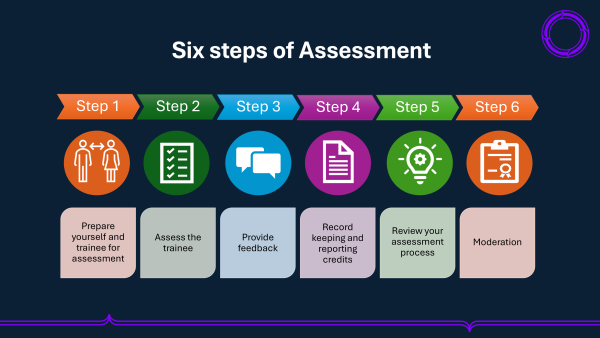Being safe
Ensuring the physical safety of themselves, their ākonga, and others at all times during an assessment, whilst also ensuring the cultural and emotional needs of their ākonga.
Correct administration processes
A crucial part of being an assessor is having the skills to fulfil your administrative responsibilities in the timeframes required. Maintaining good records for two years.
Privacy
You must always comply with the Privacy Act 1993 when managing personal information about others. You must take all practical and reasonable steps to ensure the privacy and confidentiality of assessment information and results. You need to work within the privacy policies of Te Mahi Ako - The assessment policy 3 on page 10 (here) and the ākonga workplace.
Be committed to the responsibilities of an assessor
Following 6 steps of Assessment Practice

Good assessment practice is a comprehensive approach that reflects every part of your role as an assessor. It involves conducting assessments with professionalism, ethical standards, and cultural awareness, all while following the assessment process and upholding the Te Mahi Ako Assessor Code of Practice
For more detail on the six steps of assessment practice, click here.